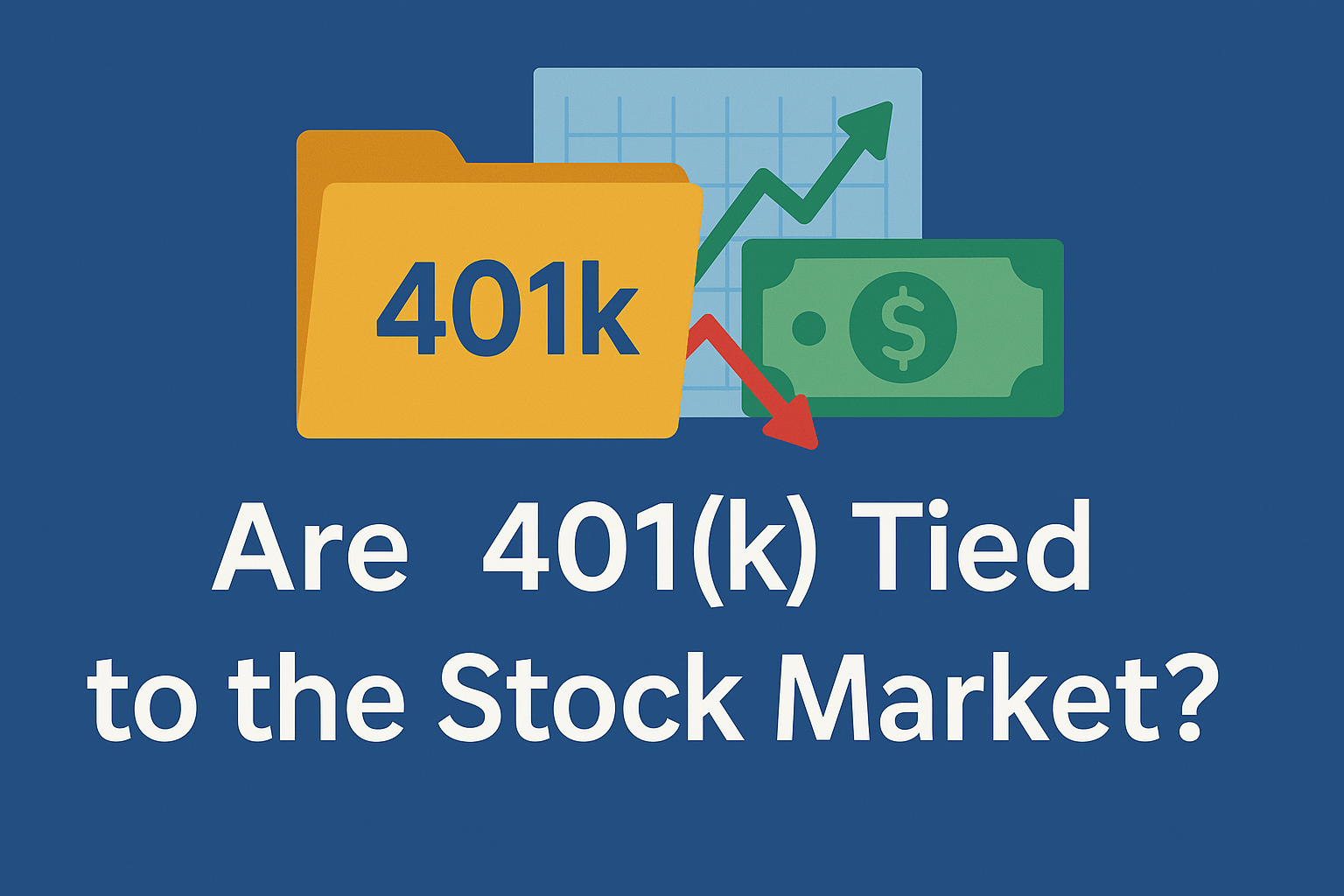Understanding the Risks and Opportunities in Your Retirement Account
When people ask whether their 401(k) is tied to the stock market, the short answer is: it depends on how it’s invested. Many Americans automatically contribute to their 401(k) through their employer without fully understanding where that money is going, how it’s invested, and what that means for their financial future—especially when the market goes through turbulence.
In this article, we’ll break down how 401(k)s work, what it means for them to be tied to the stock market, and how you can reduce risk with more secure alternatives like fixed index annuities (FIAs).
1. What Is a 401(k) and How Does It Work?
A 401(k) is a tax-advantaged retirement account offered by many employers. You contribute pre-tax dollars to your account, and your money grows tax-deferred until you withdraw it in retirement. According to the IRS (Publication 560), contributions are limited to $23,000 for 2025, with an additional $7,500 catch-up contribution for those 50 and older.
But here’s the key:
A 401(k) is not an investment itself—it’s an account that holds investments, like:
- Mutual funds
- Stocks
- Bonds
- Target-date funds
If you choose a target-date fund aimed at retirement in 2050, your 401(k) balance will heavily depend on how the underlying stocks perform over time.
2. Yes, Most 401(k)s Are Tied to the Stock Market
Unless you’ve selected conservative options like bond funds or stable value funds, your 401(k) is likely directly impacted by market performance.
- Equity-based mutual funds (common in 401(k)s) mirror the movement of stock indices like the S&P 500.
- When the market drops, so does your account.
- When it rises, your account grows.
Let’s say your 401(k) is 80% invested in an S&P 500 index fund. If the S&P drops 10%, your portfolio may lose a similar percentage—potentially thousands of dollars in retirement savings.
The 2008 financial crisis wiped out over 30% of many investors’ 401(k) balances. This is why retirees or those close to retirement need to evaluate how much of their portfolio is exposed to market volatility.
3. Can You Choose Safer Investment Options Inside a 401(k)?
- Most 401(k) plans do offer lower-risk investment options, such as:
Bond funds - Stable value funds
- Money market funds
However, these tend to offer very low returns—often not even outpacing inflation.
A bond fund might yield 3–4% annually, while inflation might run at 3.5%—leaving your purchasing power stagnant.
💡 What’s Missing? Traditional 401(k)s do not typically offer principal-protected vehicles with growth potential linked to the market, such as fixed index annuities.
4. What Are Fixed Index Annuities (FIAs) and How Do They Help?
A Fixed Index Annuity (FIA) is an insurance product that allows you to earn interest based on the performance of a market index (like the S&P 500) but with zero downside risk.
- Your principal is never lost due to a market downturn.
- Gains are locked in annually.
- Your funds grow tax-deferred—just like in a 401(k).
- Some FIAs come with lifetime income riders for guaranteed income in retirement.
If the S&P 500 goes up 10%, your FIA might credit you 6–7% (due to caps or participation rates).
If the S&P drops 20%, you earn 0%—but you don’t lose anything.
Safety & Growth: This makes FIAs a powerful tool for individuals looking to roll over their 401(k) without sacrificing growth potential or peace of mind.
According to IRS Publication 575, you can roll over a qualified plan (like a 401(k)) into an IRA annuity tax-free, as long as it’s done correctly (e.g., direct rollover or within 60 days).
5. Can You Roll Over a 401(k) Into an Annuity Without Tax Penalties?
Yes. If you’re changing jobs or retiring, you can roll over your 401(k) into:
- A Traditional IRA
- A Fixed Index Annuity (using an IRA chassis)
No taxes are triggered if it’s done as a direct rollover.
If you cash out before age 59½, expect a 10% early withdrawal penalty plus income taxes.
If you’re 60 and have $300,000 in a 401(k), you could transfer the full amount into a fixed index annuity IRA. Your money grows tax-deferred, is shielded from market losses, and can provide guaranteed income starting at age 65.
IRS Topic No. 413 – Rollovers From Retirement Plans
📞 Need Help? We’re Here 24/7!

